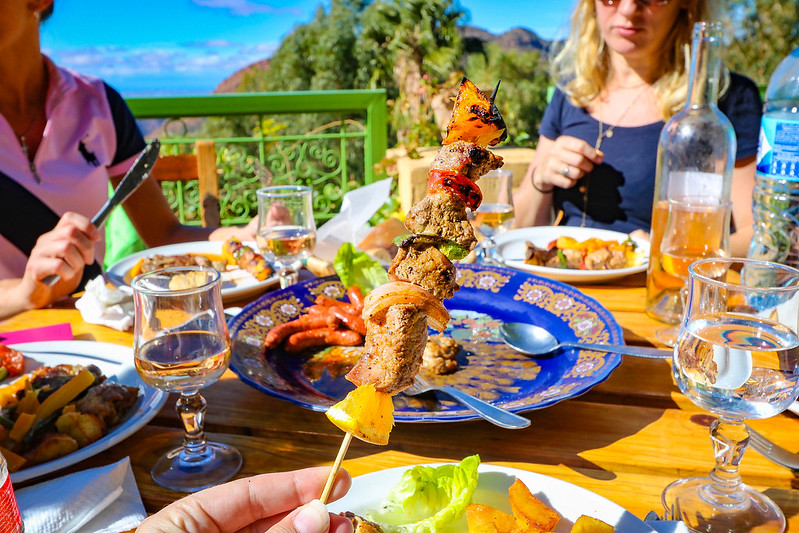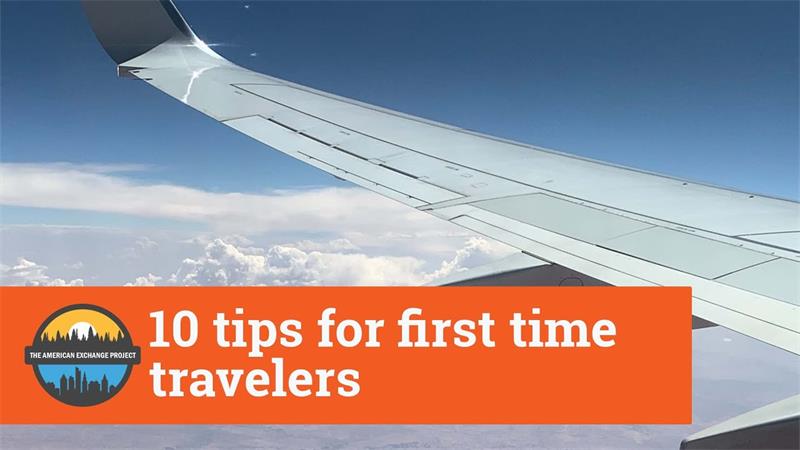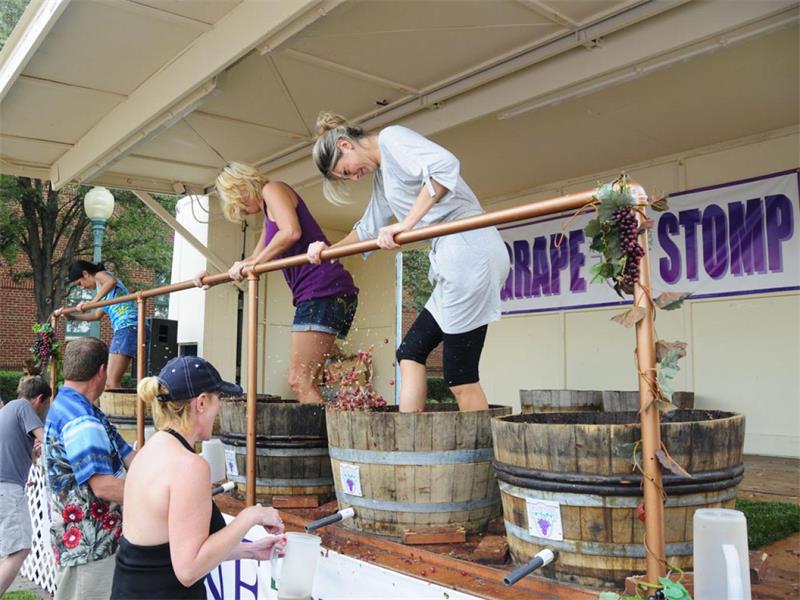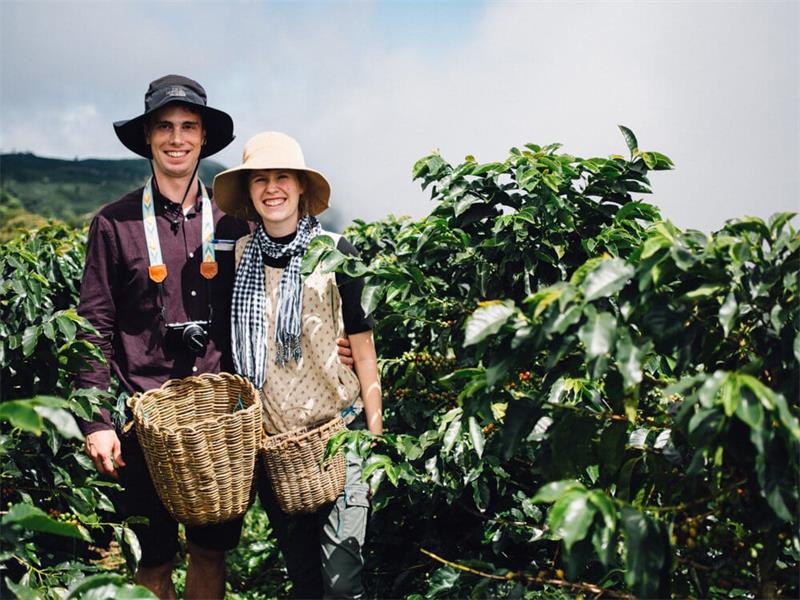Contents
Introduction
Whether you’re a seasoned traveler or someone who’s looking forward to their first big trip, one thing that can put a damper on your experience is falling victim to a travel scam. Unfortunately, these scams are all too common in many tourist hotspots around the world.
Scammers are always coming up with new and creative ways to part travelers from their money, and it’s important to be aware of common scams so that you can avoid them. One of the most popular types of travel scams involves transportation.
Taxi drivers may overcharge you or take longer routes to drive up the fare. In some places, scammers may pose as transportation services and offer rides at inflated prices or even steal your luggage once you’ve entered their vehicle.
Accommodation scams are also a threat for tourists. One common trick is fake hotel bookings or advertisements.
Scammers will often create websites that look like legitimate booking sites but actually collect your credit card details without making any reservations. Room key duplication is another way scammers get access to your room and steal valuable items.
Scams aren’t just limited to transportation and accommodations — tourist attractions are also prime targets for scammers. Overpriced tours or tickets may seem like minor annoyances, but these costs can add up quickly if you’re not careful.
What’s worse, pickpocketing is common in crowded areas near tourist attractions where unsuspecting visitors lower their guard due to distraction by the sights around them. In short – being prepared for potential travel scams will undoubtedly improve your entire trip experience because no one wants to get caught off guard while traveling!
Research and Preparation
Uncovering the Destination’s Common Scams
Researching your destination before you go is one of the best ways to protect yourself from common travel scams. Start by reading up on the scams that are most prevalent in the area you’ll be visiting. A quick Google search will usually reveal a wealth of information, including articles from reputable travel sites, forum discussions, and even official government websites that list known scams and how they work.
It’s important to understand that not all travel scams are immediately obvious. Some may involve sophisticated tactics or even local customs that may not be familiar to foreign visitors.
For example, in some countries it’s common for street vendors to “shave” coins by taking a small cut off each one they exchange with travelers. This may seem like a minor inconvenience at first, but it can add up quickly over time.
Preparing Necessary Documents and Money Management Techniques
Once you’ve researched your destination and its common scams, it’s time to start preparing for your trip. Begin by gathering all necessary documents such as passports, visas, and vaccination records. Make copies of these documents and keep them in a secure location separate from the originals.
Money management is another crucial aspect of travel preparation. Avoid carrying large sums of cash or keeping all your money in one place.
Instead, consider using a combination of cash, credit cards, and traveler’s checks for added security. Before leaving home, notify your bank about your travel plans so they don’t flag any transactions as suspicious.
Make sure you have adequate travel insurance coverage for unexpected emergencies such as medical issues or lost luggage. Taking these steps before you leave can help ensure a safe and stress-free trip without any unwanted surprises along the way.
Transportation Scams
Taxi Overcharging or Taking Longer Routes: Don’t Let Them Drive You to the Poorhouse
When traveling to a new destination, it’s easy to be taken advantage of when it comes to transportation. One of the most common scams is taxi drivers overcharging or taking longer routes than necessary.
To avoid this, do your research beforehand and find out the average cost of transportation in your destination. Additionally, make sure to agree on a price before getting into the taxi and don’t hesitate to negotiate if you feel you’re being overcharged.
Another way to avoid being scammed by taxi drivers is by using ride-hailing apps like Uber or Lyft. These services offer fixed prices, so you don’t have to worry about being taken on an unnecessarily long route or being overcharged.
Fake Transportation Services: Avoid Getting Taken for a Ride
Beware of fake transportation services that may look legitimate but are actually just trying to scam tourists out of their money. Some examples include unlicensed taxis, fake shuttle buses, and even people posing as hotel staff offering transportation services.
To avoid falling victim to these scams, always use reputable transportation companies and check for proper licensing and identification before getting into any vehicle. If someone approaches you offering a ride, politely decline and seek out a legitimate service instead.
Public Transportation Scams: Keep Your Wallet Safe
Even public transportation can be used as a means for scams targeting tourists. For example, some pickpockets may work together with someone who distracts you while they steal your wallet or valuables.
To minimize this risk, keep your belongings close and secure while using public transport. Also, beware of anyone trying too hard to help you with purchasing tickets or directions – they may be trying to distract you while someone else takes advantage of the situation.
By staying alert and taking necessary precautions, you can avoid falling victim to transportation scams while traveling. Remember to do your research beforehand, use reputable services, and always keep your belongings close at hand.
Accommodation Scams
Fake hotel bookings or advertisements
One of the most common accommodation scams is fake hotel bookings or advertisements. Scammers will create websites that look like legitimate hotel booking websites, but they will steal your money and leave you without a place to stay. To avoid this scam, always book directly through the hotel’s official website or a trusted travel site.
Do your research before booking and read reviews from other travelers to ensure that the hotel is legitimate. Another way scammers can trick you with fake hotel bookings is by sending you an email offering an excellent deal on a room in a popular destination.
These emails often contain links or attachments that take you to fraudulent websites where they extract personal information from you, such as credit card details and passport numbers. Be careful when clicking on links in emails and never provide any personal information unless you’re sure it’s trustworthy.
Room key duplication
Room key duplication is another common accommodation scam that can lead to theft or worse. Scammers can easily duplicate room keys using simple tools, allowing them access to your room while you’re out exploring. Once inside, they can steal valuable items such as cash, electronics or passports.
To avoid this scam, always double-check that your room door locks properly before leaving the room. Additionally, when checking into a new hotel for the first time try not to divulge too much information about yourself or make it known that you’re traveling alone if applicable.
Consider investing in small travel alarms which are easily attached to any door handle and sound off if it senses movement – providing peace of mind while enjoying your travels! Remember: It’s essential to be cautious when traveling solo; staying safe should be top of mind throughout your trip!
Tourist Attraction Scams
Don’t Get Taken For A Ride: Overpriced Tours and Tickets
One of the most common tourist attraction scams is overpriced tours or tickets. If you’re not careful, you could end up paying double or even triple the normal price! These scams can be especially prevalent in popular tourist destinations, where vendors take advantage of naive travelers who don’t know any better.
To avoid getting ripped off, do your research ahead of time. Look for reputable tour companies and ticket sellers with good reviews online.
Ask locals for recommendations, and always compare prices before making a purchase. Remember that if something seems too good to be true, it probably is!
Keeping Your Belongings Close: Pickpocketing in Crowded Areas
Another common tourist attraction scam to watch out for is pickpocketing in crowded areas. Unfortunately, this can happen anywhere there are large crowds of people — from busy streets to packed subway trains.
To protect yourself from pickpockets, always keep your belongings close and secure. Use a crossbody bag instead of a purse that can be easily snatched.
Don’t carry all your cash or credit cards in one place — spread them out between different pockets or bags. And be aware of your surroundings at all times — if someone seems suspicious or is standing too close to you, move away quickly.
If you do become a victim of pickpocketing, report it to the police right away and cancel any credit cards that may have been stolen. Remember that it’s better to be safe than sorry when it comes to protecting your valuables while traveling!
The Bottom Line on Tourist Attraction Scams
While it’s important not to let the fear of scams ruin your traveling experience, taking some basic precautions can go a long way towards keeping you safe and secure. Always do your research ahead of time, stay aware of your surroundings, and trust your instincts if something seems off. By following these simple tips, you can enjoy all the amazing sights and experiences that the world has to offer — without falling victim to any tourist attraction scams along the way!
Food and Drink Scams
Overcharging in Restaurants or Street Vendors
One of the most common travel scams that tourists encounter is overcharging in restaurants and street vendors. To avoid this, it’s important to research the average prices for food in the area before you go out to eat.
This way, you’ll be able to tell if a restaurant or vendor is trying to charge you more than they should. Another way to avoid being overcharged is by asking for a menu with prices before ordering anything.
Some restaurants may try to upsell you on expensive dishes or drinks without telling you the price first. By having a menu with prices, you can avoid any surprises when it comes time to pay.
Be wary of restaurants or vendors that don’t have clear pricing for their items. If there are no prices listed, they may be more likely to charge you an inflated price once your order is ready.
Tampered Drinks or Food with Hidden Charges
Unfortunately, tampered drinks and food with hidden charges are also common travel scams that can ruin your vacation. To avoid these scams, it’s important to only eat and drink from reputable places that have good reviews or recommendations from locals. When ordering drinks at a bar or restaurant, make sure that the bartender opens the bottle in front of you and pours it into a clean glass.
This will ensure that your drink hasn’t been tampered with. Additionally, check your bill carefully before paying.
Some restaurants may try to add hidden charges like “service fees” or “cover charges.” If there’s anything on your bill that wasn’t discussed beforehand, ask about it before paying. Overall, staying vigilant and doing some research beforehand can help prevent falling victim to these common food and drink travel scams.
Communication Scams
Fake Police Officers or Officials Asking for Money
One of the most frightening travel scams is when a fake police officer or official approaches you and asks for money. These scammers often wear uniforms that look similar to real law enforcement officers, making it difficult to distinguish between them.
They might ask to see your identification or passport and then claim that there is a problem with your documents, which can only be resolved by paying a fee. To avoid falling prey to this scam, always ask for identification from anyone claiming to be a police officer or official.
If you suspect that the person might not be legitimate, don’t hesitate to tell them that you want to speak with someone at the embassy or consulate. Furthermore, never hand over your passport unless absolutely necessary – if they do need it for any reason, make sure you’re getting it back as soon as possible.
Phone Call Scams Targeting Tourists
Another common communication scam involves receiving phone calls from people claiming to be from your hotel or tour company. They will typically say that there has been an issue with your booking and that they need some personal information in order to resolve it. These scammers might also try tricking you into giving them credit card information by saying they need it for verification purposes.
To avoid these phone call scams, always double-check with the hotel or tour company directly before giving out any personal information over the phone. If someone calls claiming to be from one of these places and asks for sensitive data, politely decline and contact the establishment yourself using their official contact information.
Conclusion
Staying safe while traveling means being aware of potential scams and taking steps to protect yourself from them. Whether it’s avoiding transportation scams like taxi overcharging or fake transportation services or looking out for accommodation scams like fake hotel bookings and room key duplication, staying vigilant can help keep you from falling victim to these scams. When it comes to communication scams, always verify the identity of anyone asking for personal information or money.
Don’t hesitate to ask for identification or contact the establishment directly using their official contact information. Most importantly, trust your instincts – if something feels off, it’s better to be safe than sorry.
By keeping these tips in mind and doing some research ahead of time about common travel scams in the area you’ll be visiting, you can enjoy your trip without worrying about falling prey to scammers. Stay alert, stay safe, and happy travels!
Conclusion:
Traveling can be an exhilarating experience, but it can also come with its fair share of risks. Scammers and fraudsters prey on tourists who are often unfamiliar with their surroundings, leading to lost money and unpleasant memories. However, by taking a few precautions, travelers can protect themselves from these scams and enjoy their travels without any hassles.
Recap of the importance of avoiding travel scams
It’s important to remember that scammers are always devising newer and more sophisticated ways to target tourists, which is why staying updated on common travel scams is crucial. Preparing in advance by researching your destination, carrying only what you need and being aware of your surroundings while traveling will go a long way in keeping you safe.
We’ve covered some common travel scams that range from accommodation scams to communication-related frauds. Awareness is key when traveling – avoid risky situations altogether by staying informed about potential scams before you set foot in your destination.
Encouragement to stay vigilant and alert while traveling
Don’t let the fear of being scammed ruin your trip! Instead, stay vigilant and prepared at all times.
Keep an eye out for suspicious behavior or anything that seems too good to be true. Always trust your instincts – if something feels off or uncomfortable, it probably is.
Remember that not everyone you meet while traveling has bad intentions – most locals are friendly and happy to help tourists navigate their way around town or provide recommendations for local attractions and eateries. However, being alert will put you in a better position to spot potential scammers before they have a chance to victimize you.
While there’s no foolproof method for avoiding every scam out there; doing your research beforehand, keeping up-to-date on common travel scams ,and remaining vigilant during your travels will significantly reduce the likelihood of falling victim to one. By taking the necessary precautions, you can enjoy your travels with the peace of mind that comes from knowing you’re prepared for whatever comes your way.













